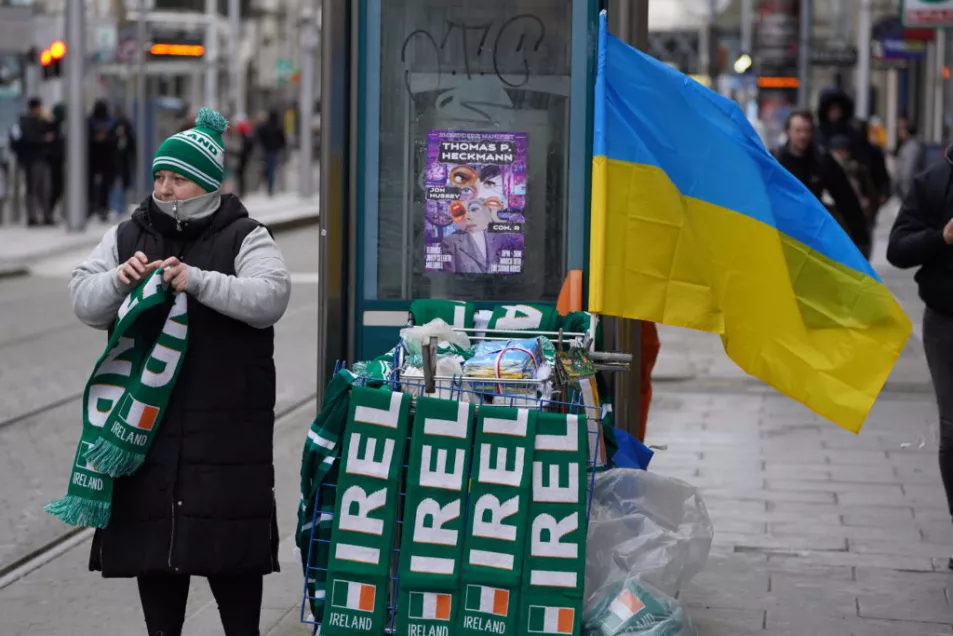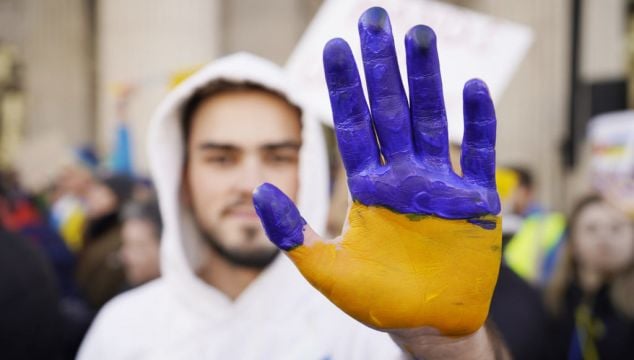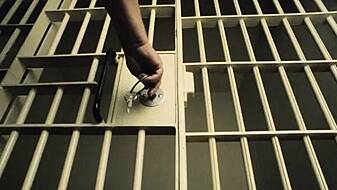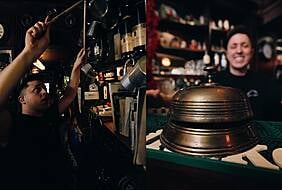The war in Ukraine should bring forward overdue conversations on the security and defence of Ireland, according to a Professor of International Relations.
Since Vladimir Putin ordered the Russian invasion of Ukraine on February 24th, the debate around Irish neutrality has come to the fore again.
Large numbers of people are against all forms of militarisation, for a variety of reasons, while others claim Ireland has never really been neutral.
Indeed, while the Government has avoided sending lethal equipment to aid in the defence of Ukraine, other forms of aid have been sent and leading Government figures have already made it clear that Ireland is not neutral on the position of Ukraine.
UCD Professor of International Relations Ben Tonra told BreakingNews.ie: "Clearly in the current circumstances, we’re seeing a clear declaration on the part of the Government and many members of the opposition, leaders of these parties, saying that Ireland is not neutral on the specific question of what’s going on in Ukraine and the Russian invasion.
'Sea change'
"What we are witnessing in Europe is a real sea change in the conversation surrounding EU security and defence policy."
The issue of a possible European defence structure has come up lately, and Prof Tonra predicts these conversations will be accelerated by the ongoing war.
"I think what we can expect to see over the coming days and weeks, never mind months, is some serious conversations about what the European Union can and should do better to defend its members.
"That will raise questions about instituting what they call a common defence in the European Union, which is provided for within the treaties. If that is put on the table then that will present the Irish State with some choices as to what it wishes to do, whether it wishes to opt in or opt out."
The recent Commission on the Defence Forces report highlighted the need for more investment in defence forces, and this debate is often brought up in the same breath as neutrality.
However, Prof Tonra feels these are two different issues.
"I’d split those two things apart. I think the conversation about the Commission on the Defence Forces, what we spend on defence, what our defence capacities are... that conversation is entirely separate to the conversation about neutrality in as much as, if the State wishes to defend itself, then it must provide itself with the resources to undertake that defence.
"After you have that conversation, you can decide do we want to conduct that defence in concert with others, or do we want to conduct that defence on our own?
"Again, both of those choices will have an impact on what you do with the Defence Forces, how you structure the Defence Forces and how you spend on defence. To be fair I think they’re two quite separate questions."
Referendum
A referendum would be required for Ireland to join a common European defence structure, and Prof Tonra explains there would be consequences for either choice.
"What I would say is whatever choice is made has consequences. Therefore, if the rest of the EU, or the overwhelming majority of the EU, wanted to proceed on this basis, and Ireland chose not to proceed on this basis, nobody is going to try and pressurise the Irish State to participate, certainly not, but if we chose not to participate then clearly that would have costs and consequences in terms of Ireland’s influence, Ireland’s role within the EU, and raise questions about Ireland’s engagement with the European Union.
"I don’t say that in any sense of a quid pro quo, or pressure coming from anywhere, it’s just a natural political consequence. If you place yourself at the margins of an organisation then you’re at the margins of an organisation with the costs that come with that."
Prof Tonra said people who are opposed to spending on military come from different positions, and that this needs to be taken into account on debates on the matter.
"You need to unpack those who are opposed to this, some of those folks are coming from a committed pacifist background, they’re anti-military full stop, some are coming from what you might call an active neutrality position, they don’t want to see Ireland align itself with other European countries, they want us to be separate and apart.
"A third group of people are uncomfortable with the idea of the European Union taking on a military role or a military aspect because they see the EU as something other or different to that and oppose the militarisation, as they see it, of the EU. It’s a quite diverse constituency we’re talking about with different perspectives therein."
European security 'turned on its head'
Prof Tonra said European security and defence has been "turned on its head" by the invasion of Ukraine. He cited German Chancellor Olaf Scholz's response, which included a €100 billion fund to modernise Germany's defence forces, as a sign of this.
"Look at what happened that Sunday morning in Germany when the German Chancellor spoke to their parliament. He took upwards of 40/50 years of German foreign security defence policy and turned it on its head, you’re talking about an absolute screeching reversal of policy.
"We’re seeing that in lots of other member states, having very serious and profound conversations about what their security and defence is, what it should be. You see debates in Finland, very active debates on whether Nato membership would be appropriate for them, conversations in France about establishing a common defence as soon as possible.
"Everything has been turned upside down, and I think you’re seeing the ripple effects of that in our own more narrow debates, about security and defence."
Prof Tonra argues that the debate on Irish security and defence is just starting, adding that it is more important than ever because of Russia's invasion of Ukraine.
The debate has to happen now.
"I think there has been a shift, certainly a shift in gear in the conversation and a shift in the nature of the conversation, but a serious debate is yet to happen. The debate hasn’t been and gone already, the debate has to happen now."
He said a common European defence would require a referendum as it is currently not permitted in the Constitution.
"It has to take the form of a referendum if the other 26 European Union member states decide that they want to establish a common defence. Ireland already had an opt-out of that, therefore if we wanted to participate in that common defence we would have to have a referendum.
"There’s no referendum required for us to support Ukraine, to send arms to Ukraine, none of that requires a referendum, it’s only that single point of a common defence. Oddly enough we could join Nato in the morning without a referendum, there’s nothing to preclude us joining Nato, but there is a specific provision in the Constitution that precludes our joining an EU common defence."
The Government stance of sending non-lethal aid to Ukraine has sparked much debate, as other neutral countries such as Sweden and Estonia have sent javelin anti-tank missiles.
Some TDs have argued that Ireland should be doing the same, but the Government stance has not changed.
Prof Tonra thinks this has to do with coalition politics, rather than concerns over neutrality.

"My view on that is it probably has more to do with internal coalition politics than it does with principal or practice, there’s nothing in legislation to prevent us doing so. There’s nothing necessarily in our traditions that prevents us from doing so, there’s nothing in our Constitution to prevent us doing so. I think it’s internal coalition politics and the specific terms of the Programme for Government where there is a provision that says Ireland will not contribute to the European Peace Facility in terms of military weapons."
He added: "It’s been peculiar because the Government has been asked repeatedly, ‘why aren’t we joining with others in doing this?’
"We’ve had lots of different explanations, we’ve been told it was neutrality, someone said it was the Constitution, someone said it was law, tradition... none of those things apply and I think, to be perfectly frank, it is entirely to do with the dynamics of coalition politics, and particularly the position of the Green Party in the Programme for Government."
Prof Tonra said Ireland's small stock of javelin anti-tank missiles would not make a big difference to the Ukrainian effort either way, but he argued it would be "hugely symbolic".
"The point is we’re not neutral, we’ve said we’re not neutral, we’re supplying defence equipment, non-lethal defence equipment. The only issue is with lethal weapons, our stocks are very small, we fire two javelin missiles every year to keep the troops training with them, and so they know how to use the equipment.
"These things have a sell-by date, they have to be rotated out, so it’s not a substantial contribution by any shape, manner or means, but it would be hugely symbolic and hugely significant in political terms. It would be noticed in Ukraine if Ireland as a neutral country changed its position and decided to send lethal weapons in defence of Ukraine, it would certainly be noticed politically, but I don’t think it’s going to make a substantial contribution one way or the other.
"However, it would be emblematic of Ireland’s strength of feeling in terms of how important it is to assist Ukraine in defending itself against Russia’s war of aggression and invasion."
Ireland's definition of neutrality
Prof Tonra said the definition of neutrality will need to be established for any future debates on the issue.
He argued that Ireland has not been neutral on a range of issues, adding that governments have sought to change its meaning in different times.
"Part of the problem we have with this conversation is that when people use the word neutrality they use it in very different ways.
"Some people see it as keeping your nose out of everybody’s business, you don’t take a stand. I don’t think that kind of neutrality has ever been the nature of Irish foreign policy. We have always taken a stand whether it’s apartheid, the Middle East, human rights, development, Ireland takes a position and is never neutral in terms of big foreign policy questions.
"Irish governments down the years have defined neutrality simply as not being members of a military alliance, to be fair that is nobody else’s definition of neutrality, using that definition of neutrality the People’s Republic of China is neutral, I don’t think anybody would describe the People’s Republic of China as neutral.
"There’s a third definition of neutrality which is the more common or public understanding, which is that neutrality is being on the side of the oppressed, with the small guy, being anti-militarist, anti-imperialist, anti-colonial, anti-nuclear weapons, pro-human rights, pro-development, pro-global justice, I think there’s a whole set of values which we have sort of sellotaped onto the label of neutrality which is what Irish people generally feel neutrality to be.
"My only reflection on that is, on almost all of those issues, being a good international citizen, defining neutrality as that, on almost all of those issues I can identify a Nato member state which does more or better on any one of those specific issues.
"Development, peace keeping, lots of Nato member states are at the forefront of those values based areas. The one area that doesn’t apply is nuclear proliferation and nuclear disarmament, there Ireland’s position is unique and could not be consistent with becoming part of the Nato alliance. With those three very different understandings of what neutrality is, that’s why we have a sort of confused discussion as to whether Ireland is, has been, or should be neutral."
Many people who argue against military spending, and the idea of a common European defence structure, argue that it would precede Ireland joining Nato.
Prof Tonra doesn't feel this would be the case.
"Nato has very little to offer to Ireland, and Ireland has little to contribute to Nato, so the strategic rationale beyond if you’re so motivated that Ireland should play its part, I don’t see any strategic reason that would justify or rationalise Irish Nato engagement. I think the EU side is more complicated because if you’re part of a club, you take the benefits and if the club decides it’s going to defend itself, is that something you want to take on board or do you want a semi-marginal or peripheral position? That’s the debate I think we’re going to have. I still think it’s a big if, if a common security and defence is proposed to be established that forces us to have that conversation."
The recent Commission on the Defence Forces report highlighted issues within the defence forces, and made a series of recommendations on increased spending and the future of Irish defence.
Prof Tonra said "we have been living in a bubble for quite some time", adding that the war in Ukraine show issues of national security and defence are more urgent.
"My only fear is we haven’t spoken about defence in a very long time. It’s only in the last 18 months to two years that the issues in the Defence Forces, have received attention, the commission on defence, people have some inkling now of the extent to which Ireland is effectively undefended, so it will be a crash course in international relations if we have to have a referendum on joining a common defence, or indeed if we have a political conversation on that level of government and political parties, and they decide not to participate in a common defence.
"We’ve lived in a bubble for quite some time, we’ve essentially convinced ourselves that we don’t need to defend ourselves. Even before these most recent events, looking at cyberattacks, hybrid attacks, our sea and looking at our airspace. It is clear that Ireland is effectively undefended, the Defence Forces have said that so this is an issue way above and before any conversations about new security measures in Europe and where Ireland fits. That conversation has to be had, but it’s all the more urgent, important and significant because of what we’re now seeing in Ukraine. There’s work that was there to be done anyway, but the urgency is at an entire new level as a result of the Russian invasion of Ukraine."
While many people think of the military aspects of defence spending, Prof Tonra pointed out that a common European defence structure could involve cybersecurity, which was highlighted with the cyberattack on the HSE last year.
Cybersecurity
"With some big multinationals based in Ireland, and all the data centres we have in Ireland, we are a target rich environment in respect of malicious actors who want to do damage to transatlantic trade, IT infrastructure, data storage, banks, hospitals, health systems and all the things we’re aware of. Ireland has a responsibility to itself to defend itself, but it also has a responsibility to defend critical infrastructure that other people rely on literally on a life or death basis, there is a responsibility the Irish State has to take that to date it has not and that applies in the cyber realm, but also in our seas and in our airspace.
"We don’t know what shape might be put on a European common defence, if it was just about cyber defence for the sake of argument, I really don’t think there would be controversy in Ireland about the State participating in an EU common cyber defence. Where the controversy comes if it encompasses what you might call territorial defence, that is to say that we are asked to defend each other; we’re asked to defend the other EU 26 and their territory and their sovereignty, then it becomes controversial because you’re talking about the use of military force in the field, on the ground, in the air, at sea etc, in defence of other countries.
"That I think will be a point of controversy and people will want to think carefully about is that a step we wish to take. If it is, why? What are the costs and consequences of that? If it’s a step we’re not willing to take, and we turn around to our EU partners and say we’re not willing to contribute to our share of collective defence, what are the costs and consequences of that for Ireland in the median and longer term?
"The Government will have to come to its own view, and if it can’t come to a collective view then it won’t be the Government any longer, so it’s in the Government’s own interest to come to a view."
He stressed that membership of such an organisation would not be a "crude quid pro quo", however, it could present Brexit issues due to political consequences.
"We had what we described as an existential crisis over Brexit. It threatened our security, our prosperity, our peace process, and we went around to 26 national capitals, banged on doors, listened to them, asked them to do the same, and they took a hit for us. They could have had a much easier agreement with the UK, they could have had a much more profitable agreement with the UK on exiting the EU, and they got the agreement they got largely because of Brexit and because they held the line we asked them to hold because it was a national security issue for us.
"They come knocking on our door now and say our largest neighbour, this huge neo-imperial neighbour, has just invaded and is occupying parts of Ukraine, threatened us. We’re looking for you to show solidarity with us. It’s entirely within the right of the Irish people to say the answer is no, but there are consequences of that, it’s not a quid pro quo, it’s just human dynamics, solidarity is a two-way street, you don’t get one-way benefits out of any membership."
While world issues develop at a frantic speed, Prof Tonra feels the fundamental changes to Europe and European security as a result of the Russian invasion will mean debates on Irish neutrality, defence and security cannot be pushed back to later dates.
"A dam has broken, in the sense we’re having these conversations. While there might be an inbuilt desire to put off answering these tough questions, I don’t think that’s going to be an option," he concluded.







